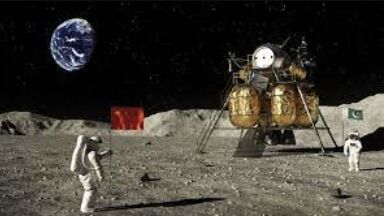New International Lunar Research Station coalition expands as Pakistan and Belarus join, intensifying global space race
Pakistan and Belarus have joined China's International Lunar Research Station project, while NASA is building its own lunar coalition. These developments showcase global collaboration and competition in space exploration.
In a major development for space exploration, Pakistan and Belarus have officially joined the International Lunar Research Station (ILRS) project led by China. The ILRS aims to construct a moon base in the 2030s, and with the addition of Pakistan and Belarus, the coalition now consists of seven nations. The other members include China, Russia, Azerbaijan, Venezuela, and South Africa. While these countries may not have significant space capabilities, their contributions extend beyond technical aspects and reflect China's broader interests in the project.
Pakistan has officially joined China's International Lunar Research Station (ILRS) project, signing an understanding with China's space agency (CNSA) .
— Pakscience (@paksciencepk) October 22, 2023
This partnership includes cooperation on the construction of a lunar base in the 2030s. pic.twitter.com/28aSuOCU7q
Pakistan, in particular, relies on China for its launch capabilities and has only three active satellites in orbit, compared to China's over 800. However, their involvement demonstrates political support and endorsement of China's moon plans. At the same time, NASA is building its own lunar coalition through the Artemis Accords. These agreements outline responsible and peaceful lunar exploration, with 29 nations, including Australia, Canada, France, India, and the United Kingdom, having already signed on.
The primary goal of NASA's Artemis program is to establish one or more lunar bases near the moon's south pole, which is believed to contain valuable water ice resources. These bases are expected to be completed by the end of the 2020s and will provide crucial experience and knowledge for NASA's plans to send astronauts to Mars by the late 2030s or early 2040s.
The addition of Pakistan and Belarus to the ILRS and the ongoing efforts of NASA's Artemis program highlight the global collaboration and competition taking place in space exploration. As countries vie for a foothold in lunar and Martian missions, partnerships are being forged to maximize resources and expertise. These developments bring us closer to a future where human presence extends beyond Earth, opening up new frontiers for scientific discovery and exploration.




